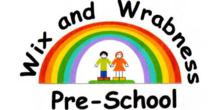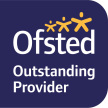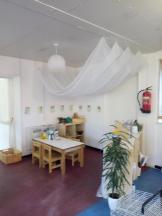SAFEGUARDING
Our preschool works with children and parents to ensure the rights and safety of children and to give them the very best start in life. All staff have attended Safeguarding Children training .
VALUING DIVERSITY AND PROMOTING EQUALITY
Our setting is committed to anti-discriminatory practice to promote equality of opportunity and valuing diversity for all children and families.
SPECIAL EDUCATIONAL NEEDS
We provide an environment in which all children, including those with special educational needs, are supported to reach their full potential. We have an experienced SENCO (Special Educational Needs Co-ordinator) who ensures our provision meets the needs of each individual child
The Revised EThe Revised Early Years Foundation Stage (EYFS)
What parents/carers need to know
What is the EYFS?
The Early Years Foundation Stage (EYFS) was originally launched in 2008. It is the statutory framework for all early years providers in England but it is held in high regard worldwide. The Statutory Framework for the Early Years Foundation Stage sets the standards that all early years providers must meet. Early years providers in England who provide care and learning for children from birth to the end of reception class must comply with the EYFS Statutory Framework. Ofsted regulate and inspect all early years providers against the safeguarding and welfare requirements and areas of learning to determine how well children are kept safe and healthy. From time to time the EYFS is updated and refreshed, so far this has happened in 2012, 2014 and 2017.
What is changing?
From September 2021 a revised EYFS will come into force. The key messages about the reforms include:
- Reducing practitioner/teacher workload and needless paperwork to allow for more quality time and interactions with the children
- Improving the outcomes of all children and addressing/reducing the disadvantage gaps
- The importance of workforce knowledge and professional development to inform assessments. Reflect upon the need to assess every child’s development against ‘check lists’, saving formal steps of assessment for when they are necessary
- Making early learning goals clearer and more aligned to Y1 curriculum.
What do the changes mean to me as a parent/carer?
The safety of your child and the quality of the education provided will not change. You will not see any changes in terms of the activities and opportunities on offer to your child/ren. We decided a couple of years ago to only record WOW moments through short written observations, photos & your child’s work in your child’s learning journey so are fully prepared for the changes ahead. You are welcome to look at your child’s learning journey as often as you want and we welcome input from you. Please be reassured that we will still be supporting your child’s development and responding to their interests. We will be using our professional judgements to assess your child’s development during our daily interactions and activities. The progress check at 2 years is still a mandatory assessment point and we will still share your child’s development and progress with you.
Your child’s Key Person will continue to assess your child throughout the time they are in preschool. Updates will be given to you at the end of every half term and any concerns will be raised with you as they are identified, this will allow us to work with you to overcome these. We will continue to update you verbally after every session with what your child has been doing throughout the day.
Our curriculum
The 7 areas of learning and development within the EYFS have not changed, these are:
• Communication and language
• Physical development
• Personal, social and emotional development
• Literacy
• Mathematics
• Understanding the world
• Expressive arts and design
The prime areas of learning form the essential foundations for healthy development and future learning. Once a solid start has formed within the prime areas we continue to build upon these skills, opening to explore more learning opportunities within the specific areas of learning.
These 7 areas are the basis for our curriculum. Careful thought is given to inform our enabling environments (indoors and outdoors), to provide resources, activities and learning opportunities to meet each child’s unique requirements. Ofsted call this ‘curriculum’. Our curriculum is very flexible and responsive to follow children’s interests and those totally unplanned learning opportunities that sometimes come out of the blue, such as it unexpectedly snowing or finding a bird egg in the garden.
Young children learn through play. The EYFS refers to the Characteristics of Effective Learning. These are:
• Playing and exploring
• Active learning
• Creating and thinking critically
Every EYFS provider has their own bespoke curriculum, to support each child’s unique developmental pathway, following their interests and fascinations




